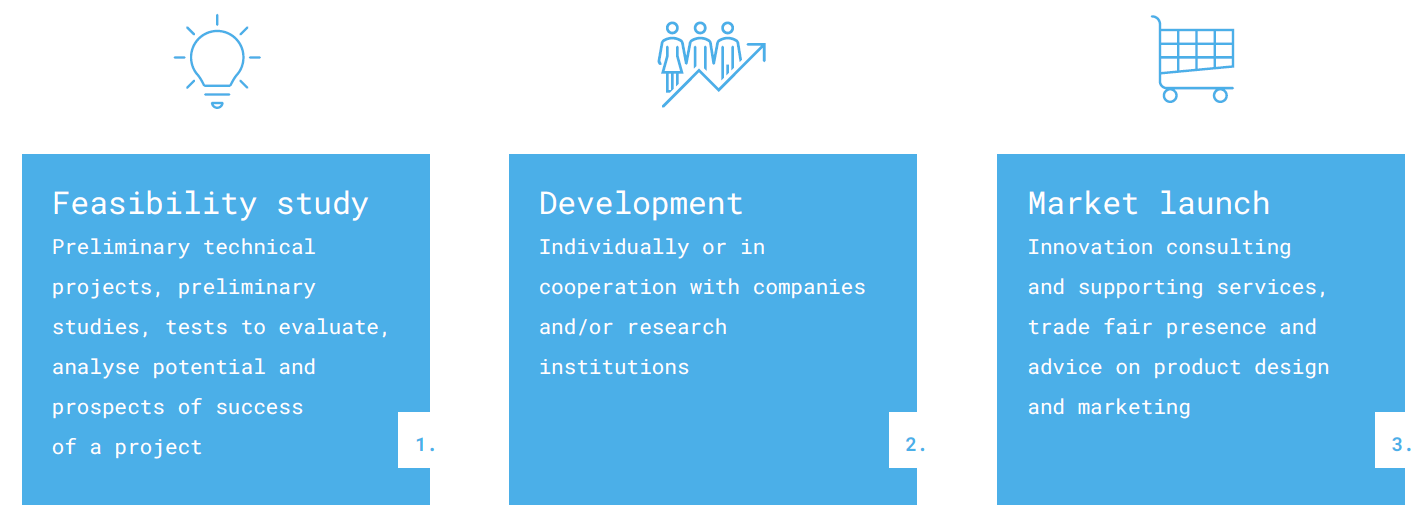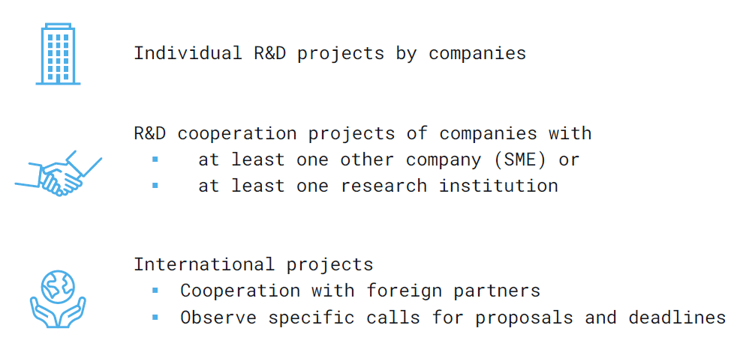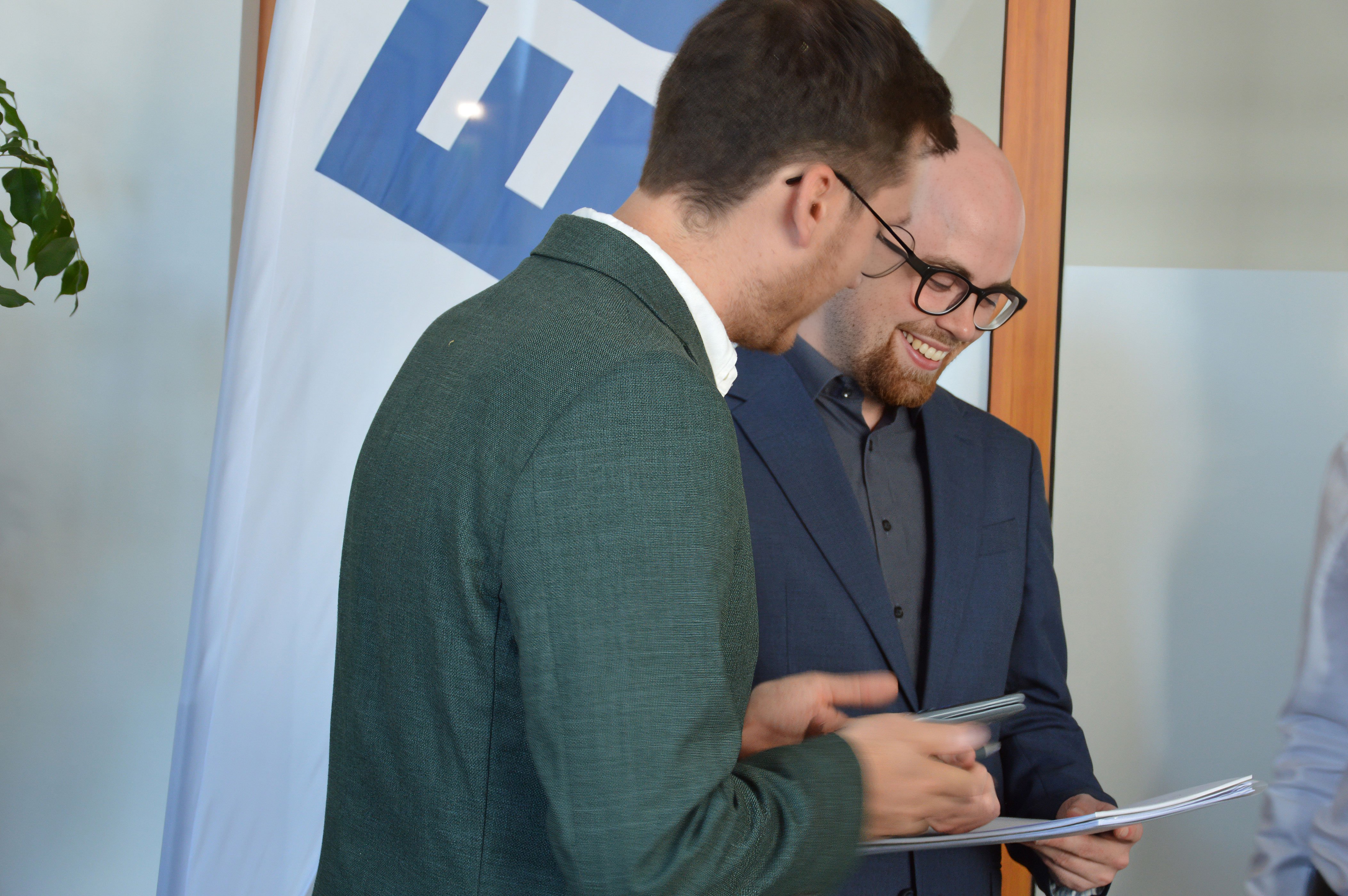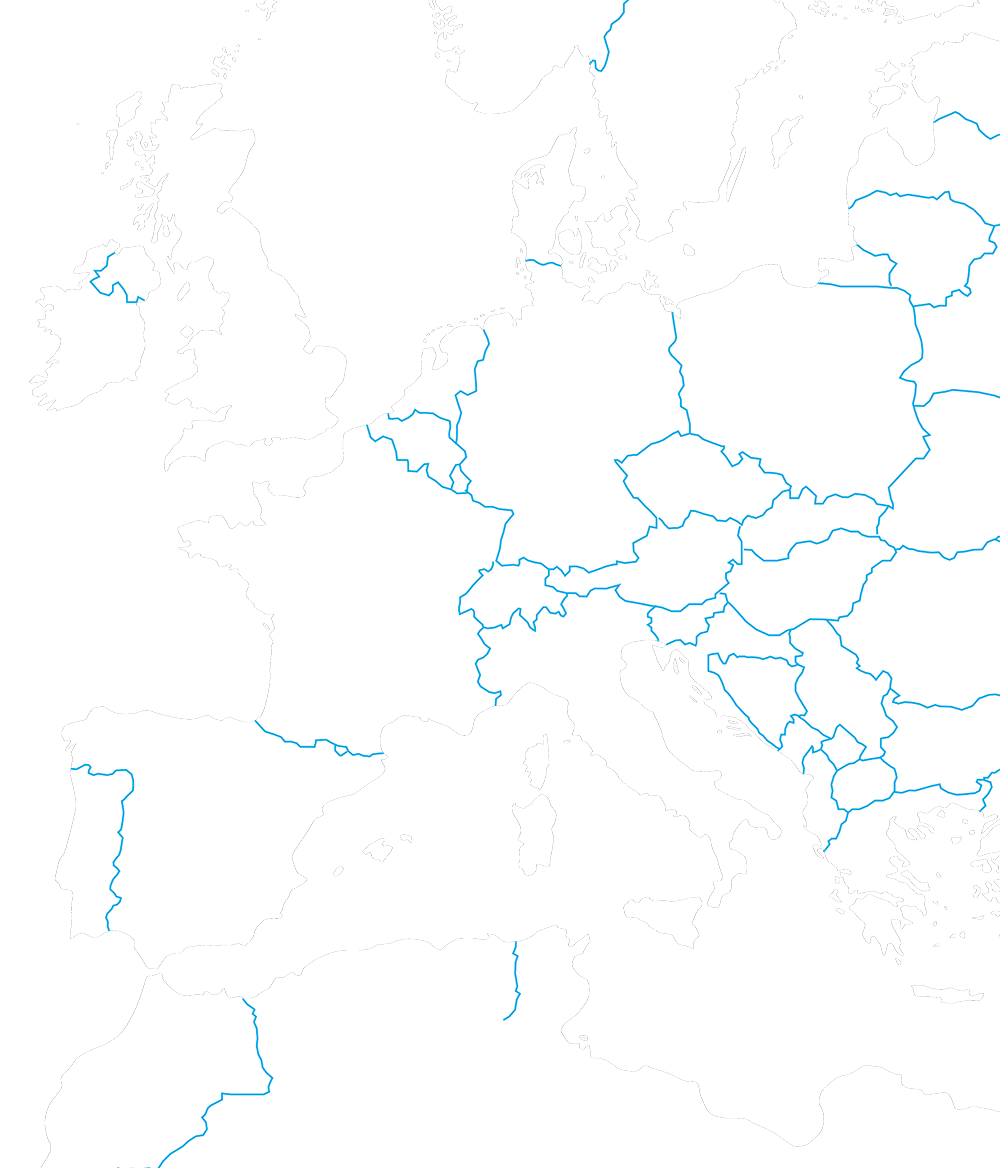What is the difference between ZIM and the research tax allowance (FZul)?
The main differences between ZIM and the "steuerliche Forschungszulage" (research tax allowance) are as follows:
- Higher funding rates for SMEs (up to 60%) with ZIM
- Overhead rate of max. 100% for ZIM
- Payment of approved funding every three months for ZIM
- ZIM funding is designed for projects that have not yet started; FZul also possible retrospectively.
Who is ZIM suitable for?
The ZIM funding programme is suitable for SMEs, young companies and medium-sized companies with a permanent establishment or branch in Germany.
Are there any deadlines that need to be observed when applying for ZIM funding?
No. ZIM applications can be submitted at any time.
What types of projects are funded by ZIM?
The ZIM programme funds individual projects by companies as well as national and international cooperation projects with companies and/or research institutions.
Are software projects eligible for ZIM funding?
As an open-topic funding programme, the same guidelines apply to software projects as to all hardware topics. However, it is often more difficult to identify development risks and the novelty character of software topics. In this case, it is advisable to contact the responsible project management organisation and/or a professional consultancy firm.
Are ZIM projects de minimis relevant?
ZIM-funded R&D projects are not de minimis relevant. However, funding for ‘market launch services’ is de minimis relevant if they are carried out after the end of the project. ZIM feasibility studies are also subject to de minimis funding in accordance with the new guideline from 2025. The same applies to co-payments for participation in a ZIM innovation network.
How much ZIM funding is available?
The amount of ZIM funding depends on the size of the company and the type of project. The maximum funding rate is 60% of a maximum of 690,000 euros.
Can I submit several ZIM projects at the same time?
Up to two approvals are possible within a twelve-month period.
Can companies receive funding from other programmes at the same time as ZIM funding?
Yes, companies can receive funding from other funding programmes at the same time as ZIM funding, but not for the same project.
What is a ZIM feasibility study?
In addition to traditional R&D projects, technical feasibility studies and feasibility analyses are also eligible for funding under ZIM. These serve to evaluate and analyse the potential and the probability of success of a planned R&D project.
What are ZIM services for market launch?
In addition to traditional R&D projects, ZIM funding is also available for market launch services that are provided by external service providers and serve the economic utilisation of a ZIM-funded R&D project. This includes, for example, measures for patent registration, quality assurance, certification, market research, testing, etc., for which our go-to-market service will be able to support you.
What are the most important success factors for the approval of ZIM funding?
The most important success factors for approval of ZIM funding are
- High degree of innovation
- High technical risks within the solution approaches pursued
- High commercialisation potential
Do I have to submit an outline to ZIM in advance?
No. No sketch has to be submitted to ZIM in advance. However, in certain cases it is advisable to submit an outline for an initial assessment of the project idea.
Are there restrictions for certain sectors or types of innovation projects within the ZIM programme?
No. The ZIM funding programme is open to all technologies.
What options are there for companies that are not eligible for funding but would still like to participate in ZIM projects?
Companies that are not eligible for funding in ZIM can participate fully in the project as an associated (non-funded) partner. Alternatively, the companies can participate in the project via an external contract from the applicant.
What needs to be considered for newly founded companies?
ZIM is no start-up programme. Therefore, the start-up must already have been completed. However, formal entry in the commercial register is not sufficient. Rather, it should already be possible to demonstrate turnover with a regularly produced product. This is because ongoing sales are a prerequisite for funding in ZIM as proof of financing the R&D project's own contribution.
By when can a funding decision usually be expected?
The processing time for a ZIM application is usually around three months.
Where can I find more information on ZIM funding?
Further information can be found on the official ZIM FAQ page.
Where can I find the guidelines for the "Zentrales Innovationsprogramm Mittelstand" (ZIM)?
The guidelines for the ZIM programme can be found on the official ZIM guideline page.










.jpeg)





EurA AG
T- 079619256-0Max-Eyth-Straße 2
73479 Ellwangen
info@eura-ag.com